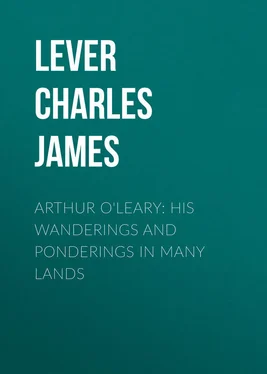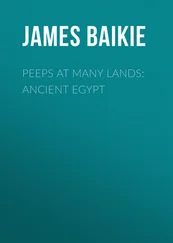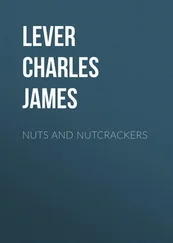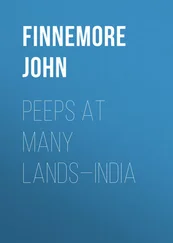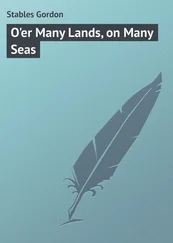Charles Lever - Arthur O'Leary - His Wanderings And Ponderings In Many Lands
Здесь есть возможность читать онлайн «Charles Lever - Arthur O'Leary - His Wanderings And Ponderings In Many Lands» — ознакомительный отрывок электронной книги совершенно бесплатно, а после прочтения отрывка купить полную версию. В некоторых случаях можно слушать аудио, скачать через торрент в формате fb2 и присутствует краткое содержание. Издательство: Иностранный паблик, Жанр: literature_19, foreign_antique, foreign_prose, на английском языке. Описание произведения, (предисловие) а так же отзывы посетителей доступны на портале библиотеки ЛибКат.
- Название:Arthur O'Leary: His Wanderings And Ponderings In Many Lands
- Автор:
- Издательство:Иностранный паблик
- Жанр:
- Год:неизвестен
- ISBN:нет данных
- Рейтинг книги:3 / 5. Голосов: 1
-
Избранное:Добавить в избранное
- Отзывы:
-
Ваша оценка:
- 60
- 1
- 2
- 3
- 4
- 5
Arthur O'Leary: His Wanderings And Ponderings In Many Lands: краткое содержание, описание и аннотация
Предлагаем к чтению аннотацию, описание, краткое содержание или предисловие (зависит от того, что написал сам автор книги «Arthur O'Leary: His Wanderings And Ponderings In Many Lands»). Если вы не нашли необходимую информацию о книге — напишите в комментариях, мы постараемся отыскать её.
Arthur O'Leary: His Wanderings And Ponderings In Many Lands — читать онлайн ознакомительный отрывок
Ниже представлен текст книги, разбитый по страницам. Система сохранения места последней прочитанной страницы, позволяет с удобством читать онлайн бесплатно книгу «Arthur O'Leary: His Wanderings And Ponderings In Many Lands», без необходимости каждый раз заново искать на чём Вы остановились. Поставьте закладку, и сможете в любой момент перейти на страницу, на которой закончили чтение.
Интервал:
Закладка:
“While matters were in this state, a large timber ship, bound for England, struck on a reef of rocks at the entrance of the bay. The sea ran high, and a storm of wind from the north-west soon rent her in fragments. The colonists, who knew every portion of the bay well, put out, the first moment they could venture, to the wreck, not, however, to save the lives and rescue the poor fellows who yet clung to the rigging, but to pillage the ship ere she went to pieces. The expedition succeeded far beyond their most ardent hopes, and a rich harvest of plunder resulted from this venture, casks of powder, flour, pork, and rum, were landed by every tide at their doors, and once more, the sounds of merriment and rejoicing, were heard in the village. But how different from before was it! Then, they were happy and contented settlers, living like one united family in brotherly affection and kind good-will; now, it was but the bond of crime that bound, and the wild madness of intoxication, that excited them. Their hunting grounds were no longer cared for; the fields, with so much labour rescued from the forest, were neglected; the fishing was abandoned; and a life given up to the most intemperate abandonment, succeeded to days of peaceful labour and content. Not satisfied with mere defence, they now carried the war into the Indian settlements, and cruelties the most frightful ensued in their savage reprisals.
“In this dangerous coast a winter never passed without several wrecks occurring, and as they now practised every device, by false signals and fires, to lure vessels to their ruin, their infamous traffic succeeded perfectly, and wrecking became a mode of subsistence, far more plentiful than their former habits of quiet industry.
“One long reef of rocks that ran from the most southerly point of the bay, and called by the Indians ‘the Teeth,’ was the most fatal spot of the whole coast, for while these rocks stretched for above a mile, to sea, and were only covered at high water, a strong land current drew vessels towards them, which, with the wind on shore, it was impossible to resist.
“To this fatal spot, each eye was turned at day-break, to see if some ill-starred vessel had not struck during the night. This, was the last point each look was bent on, as the darkness was falling; and when the wind howled, and the sea ran mountains high, and dashed its white foam over their little huts, then, was every one astir in the village. Many an anxious gaze pierced through the mist, hoping some white sail might gleam through the storm, or some bending spar show where a perishing crew yet cried for help. The little shore would then present a busy scene, boats were got out, coils of rope, and oars strewed on every side, lanterns flitted rapidly from place to place. With what energy and earnestness they moved, how their eyes gleamed with excitement, and how their voices rung out, in accents of hoarse command. Oh! how horrible to think that the same features of a manly nature – the bold and daring courage that fears not the rushing wave, nor the sweeping storm, the heroic daring that can breast the wild breakers as they splash on the dark rocks, can arise from impulses so opposite; and that humanity the fairest, and crime the blackest, have but the same machinery to work with.
“It was on a dark November night – the heavy sough of a coming storm sent large and sullen waves on shore, where they broke with that low hollow cadence, that seamen recognise as boding ill. A dense, thick fog, obscured all objects sea-ward, and though many scouts were out upon the hills, they could detect nothing; still, as the night grew more and more threatening, the wreckers felt assured a gale was coming, and already their preparation was made for the approaching time. Hour after hour passed by, but though the gale increased, and blew with violence on the shore, nothing could be seen. Towards midnight, however, a scout came in to say, that he thought he could detect at intervals, through the dense mist, and spray, a gleaming light in the direction of ‘the Teeth.’ The drift was too great to make it clearly perceptible, but still, he persisted he had seen something.
“A party was soon assembled on the beach, their eyes turned towards the fatal rocks, which at low water rose some twelve or fifteen feet above the surface. They gazed long and anxiously, but nothing could they make out, till, as they were turning away, one cried out, ‘Ay, see there – there it is now;’ and as he spoke, a red-forked flame shot up through the drifting spray, and threw a lurid flash upon the dark sea. It died away almost as quickly, and though seen at intervals again, it seemed ever to wax fainter, and fainter. ‘She’s on fire,’ cried one. ‘No, no; it’s a distress signal,’ said another. ‘One thing is certain,’ cried a third, ‘the craft that’s on the “Teeth” on such a night as this, won’t get off very readily; and so, lads, be alive and run out the boats.’
“The little colony was soon astir. It was a race of avarice too; for, latterly, the settlement had been broken up by feuds and jealousies, into different factions; and each strove to overreach the other. In less than half an hour, eight boats were out, and breasting the white breakers, headed out to sea. All, save the old and decrepit, the women, and children, were away, and even they, stood watching on the shore, following with their eyes the boats in which they felt most interested.
“At last they disappeared in the gloom – not a trace could be seen of them, nor did the wind carry back their voices, over which the raging storm was now howling. A few still remained straining their eye-balls towards the spot where the light was seen, the others had returned towards the village; when all of a sudden a frightful yell, a long sustained and terrible cry arose from the huts, and the same instant a blaze burst forth, and rose into a red column towards the sky. The Indians were upon them. The war shout – that dreadful sound they knew too well – resounded on every side. Then began a massacre, which nothing in description can convey. The dreadful rage of the vengeful savage – long pent up – long provoked – had now its time for vengeance. The tomahawk and the scalping knife ran red with blood, as women and infants rushed madly hither and thither in the flight. Old men lay weltering in their gore beside their daughters, and grandchildren; while the wild red men, unsated with slaughter, tore the mangled corpses as they lay, and bathed themselves in blood. But not there did it end. The flame that gleamed from the ‘Teeth’ rocks, was but an Indian device, to draw the wreckers out to sea. A pine-wood fire had been lighted on the tallest cliff at low water, to attract their attention, by some savages in canoes, and left to burn away slowly during the night.
“Deceived and baffled, the wreckers made towards shore, to which already their eyes were turned in terror, for the red blaze of the burning huts was seen, miles off, in the bay. Scarcely had the first boat neared the shore, when a volley of fire-arms poured in upon her – while the war-cry that rose above it, told them their hour was come. The Indians were several hundred in number, armed to the teeth; the others few, and without a single weapon. Contest, it was none. The slaughter scarce lasted many minutes, for ere the flame from the distant rock subsided, the last white man lay a corpse on the bloody strand. Such was the terrible retribution that followed on crime, and at the very moment too, when their cruel hearts were bent on its perpetration.
“This tale, which was told me in a broken jargon, between Canadian-French and English, concluded with words, which were not to me, at the time, the least shocking part of the story; as the narrator, with glistening eyes, and in a voice whose guttural tones seemed almost too thick for utterance said, ‘It was I, that planned it!’
Читать дальшеИнтервал:
Закладка:
Похожие книги на «Arthur O'Leary: His Wanderings And Ponderings In Many Lands»
Представляем Вашему вниманию похожие книги на «Arthur O'Leary: His Wanderings And Ponderings In Many Lands» списком для выбора. Мы отобрали схожую по названию и смыслу литературу в надежде предоставить читателям больше вариантов отыскать новые, интересные, ещё непрочитанные произведения.
Обсуждение, отзывы о книге «Arthur O'Leary: His Wanderings And Ponderings In Many Lands» и просто собственные мнения читателей. Оставьте ваши комментарии, напишите, что Вы думаете о произведении, его смысле или главных героях. Укажите что конкретно понравилось, а что нет, и почему Вы так считаете.
